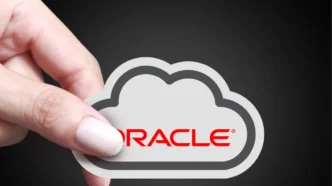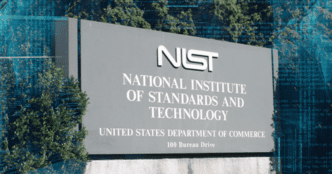Despite Oracle’s continued denial of any breach within its cloud environment. A growing chorus of security experts is urging organizations to act swiftly and review their Oracle Cloud accounts for signs of compromise. Concerns are mounting over the potential exposure of personally identifiable information (PII), administrative credentials, and cryptographic keys. That could be leveraged for deeper intrusions across enterprise networks.
The alleged breach, first reported by cybersecurity firm CloudSEK on March 21, involves a hacker known as “rose87168”. Who claimed to have obtained and put up for sale over 6 million records from Oracle’s authentication infrastructure, including Single Sign-On (SSO) and LDAP systems. The data reportedly came from more than 140,000 Oracle Cloud tenants.
While Oracle has firmly denied that its Oracle Cloud Infrastructure (OCI) was compromised. Researchers argue the breach may have occurred in other parts of the tech giant’s cloud ecosystem—specifically Oracle Cloud Classic, the company’s older platform.
What Was Stolen in Oracle Cloud?
CloudSEK and other threat intelligence firms who reviewed samples of the leaked data reported seeing encrypted passwords, Java KeyStore (JKS) files, enterprise manager keys. And other sensitive records that could allow threat actors to access or escalate privileges inside compromised networks.
Security firm Trustwave, which independently analyzed parts of the dataset. Confirmed the presence of user account data tied to admin groups, along with indicators like account status, access permissions, and identifiable company domain names—over 128,000 unique domains in total.
“This leak represents a serious compromise of identity and privilege security,” wrote Trustwave researchers Nikita Kazymirskyi and Karl Sigler. They warned that such exposure opens the door to ransomware, data exfiltration, and long-term espionage operations.
If confirmed, the breach could trigger compliance repercussions for organizations covered by frameworks like the General Data Protection Regulation (GDPR) or the Health Insurance Portability and Accountability Act (HIPAA). Even if data was encrypted. The exposure of PII and administrative access may qualify as a reportable event under several privacy statutes.
Security researcher Kevin Beaumont pointed out that Oracle’s denial carefully references OCI, while sidestepping any admission about other Oracle-managed services, including Oracle Cloud Classic. “It’s misleading,” Beaumont said in a recent Medium post. “They’re playing word games instead of communicating clearly with customers.”
Recommended Mitigations
For enterprises concerned about exposure, multiple cybersecurity experts suggest immediate action, regardless of Oracle’s public statements.
Liran Farazis, global enterprise security manager at Sygnia, outlined several high-priority steps for affected organizations:
- Reset credentials used in Oracle Cloud SSO, LDAP, and encrypted configurations
- Invalidate sessions and tokens across Oracle components
- Review access logs and authentication patterns for anomalies
- Rotate cryptographic keys and secrets used in Oracle environments
- Implement continuous monitoring for suspicious behavior or privilege misuse
Sygnia emphasized that implementing these mitigations may be technically complex depending on the organization’s setup, but they are essential for maintaining a secure posture amid the uncertainty.
Trustwave issued similar recommendations, including:
- Enforcing multi-factor authentication (MFA) on all systems
- Regenerating SSO, SAML, or OIDC secrets
- Auditing and disabling dormant or unused accounts
- Isolating systems accessed using the compromised credentials
CloudSEK has also provided a tool that organizations can use to check if their domain appears in the leaked dataset, which could serve as an early warning for compromised credentials.
Oracle has not issued a new statement following additional samples shared by the attacker and growing expert consensus. Its previous stance emphasized that “no OCI customers experienced a breach or lost any data,” framing the leaked credentials as unrelated to Oracle Cloud Infrastructure.
However, security analysts say this language may intentionally exclude incidents from other cloud environments Oracle operates. This tactic, critics argue, erodes customer trust and slows incident response for potentially affected businesses.
“Oracle needs to be more transparent,” Beaumont wrote. “Their silence and vague denials only deepen the risk for everyone else who relies on their services.”
As more companies rely on cloud-based identity systems for critical access, any compromise—whether confirmed or not—demands an abundance of caution. Until Oracle provides a full and clear explanation, customers should assume exposure is possible and act accordingly to harden their environments.
Waiting for an official admission may cost time you don’t have.













